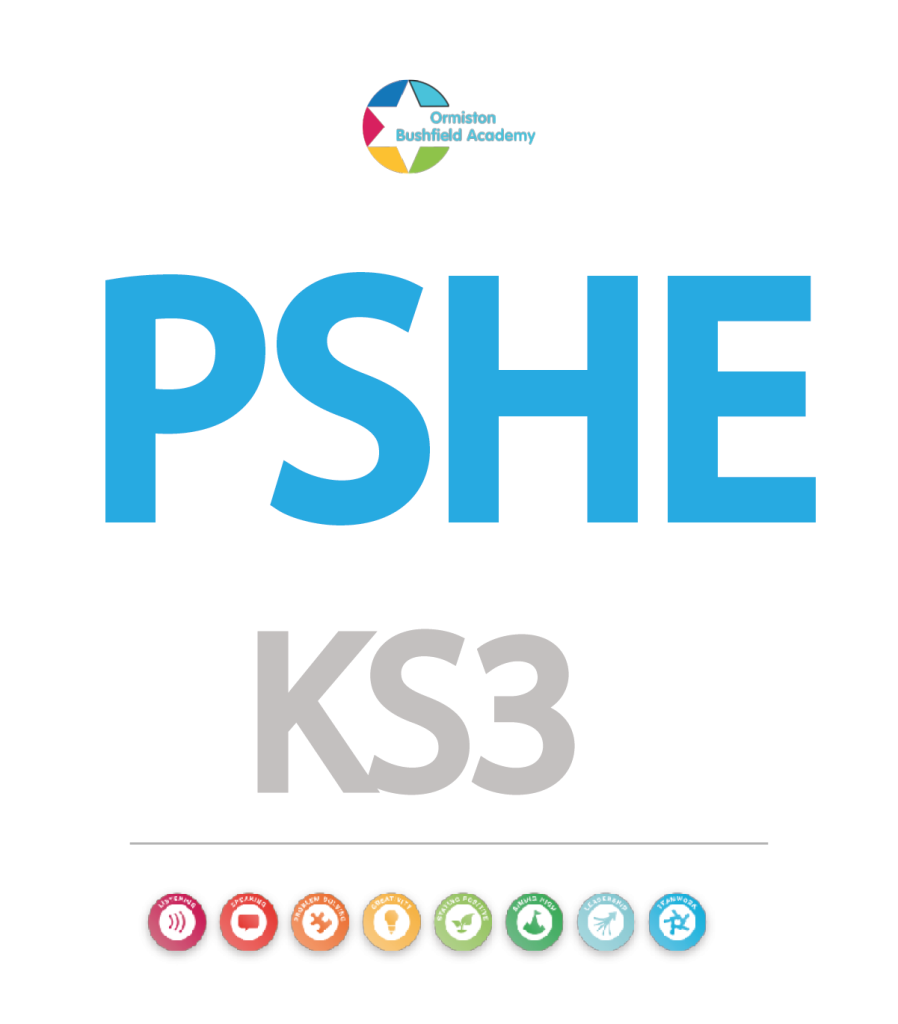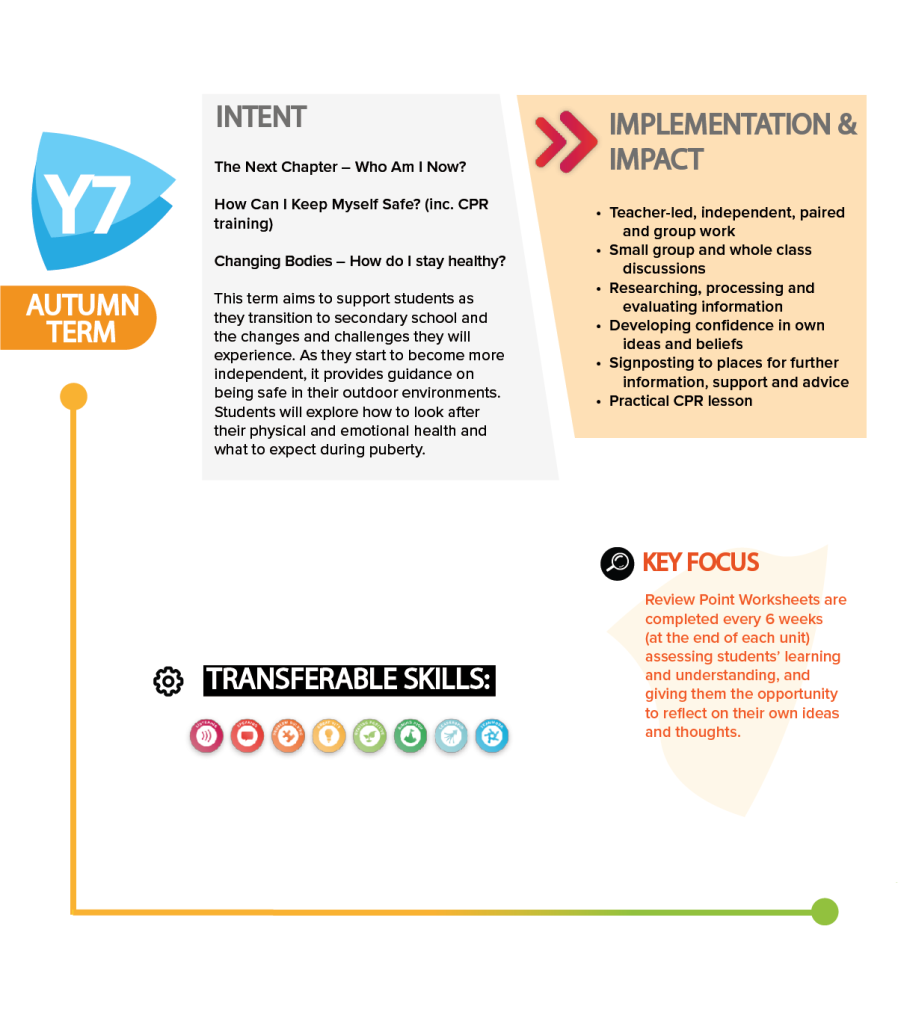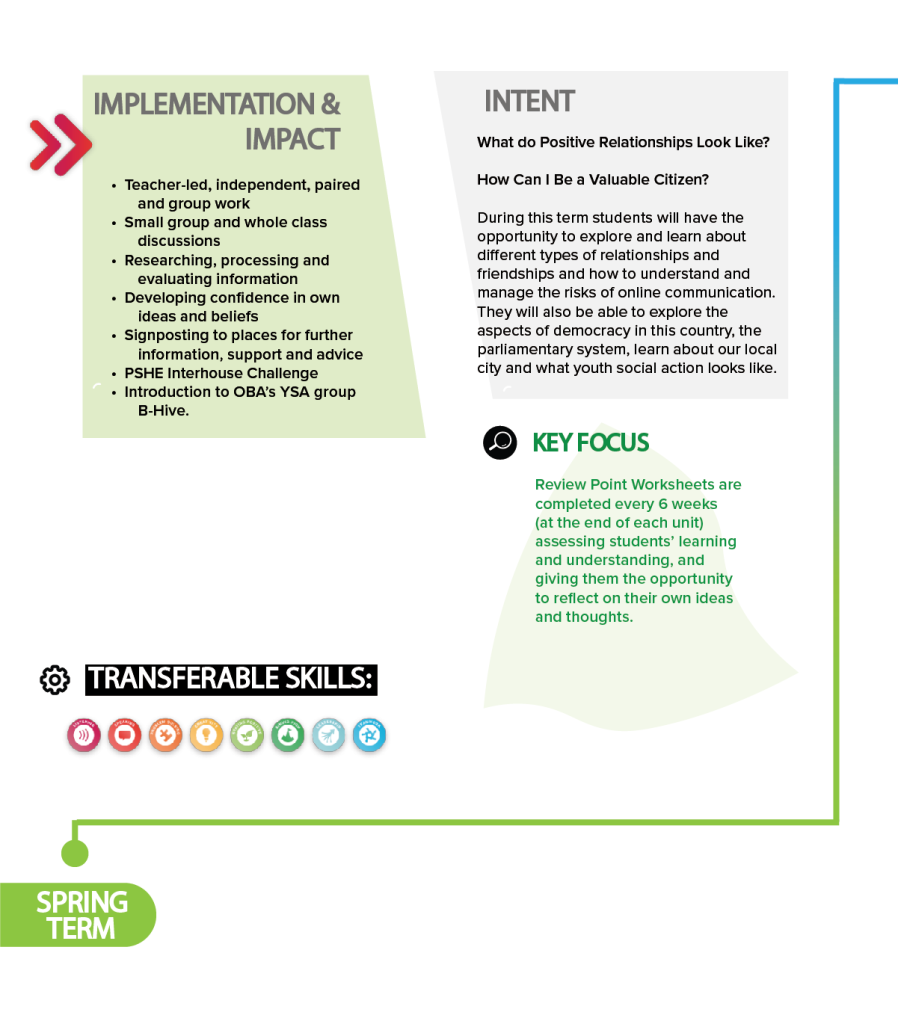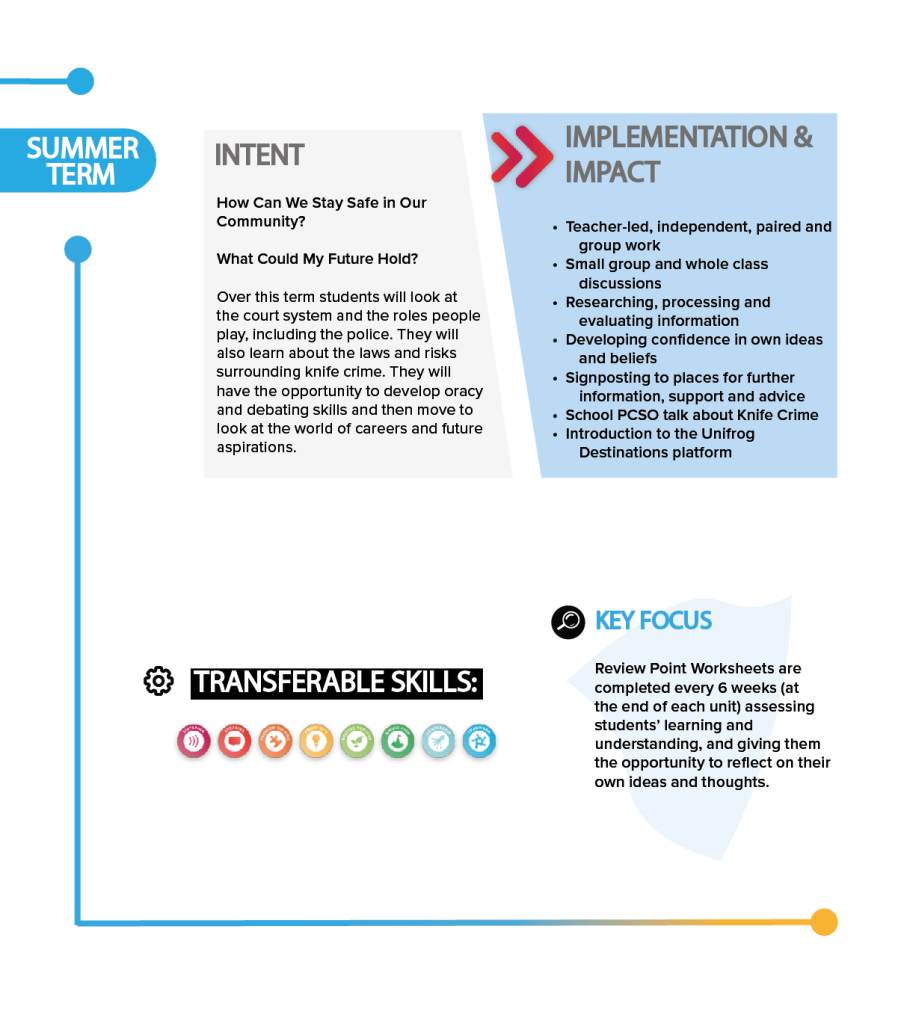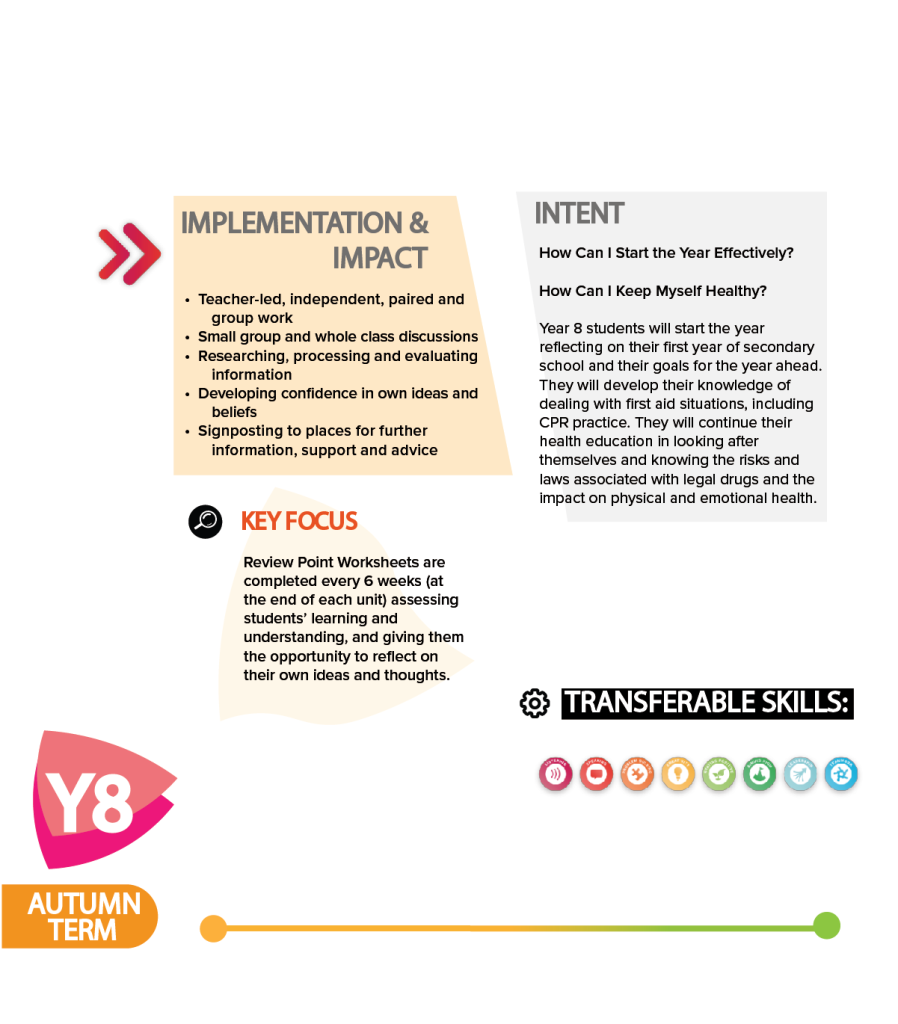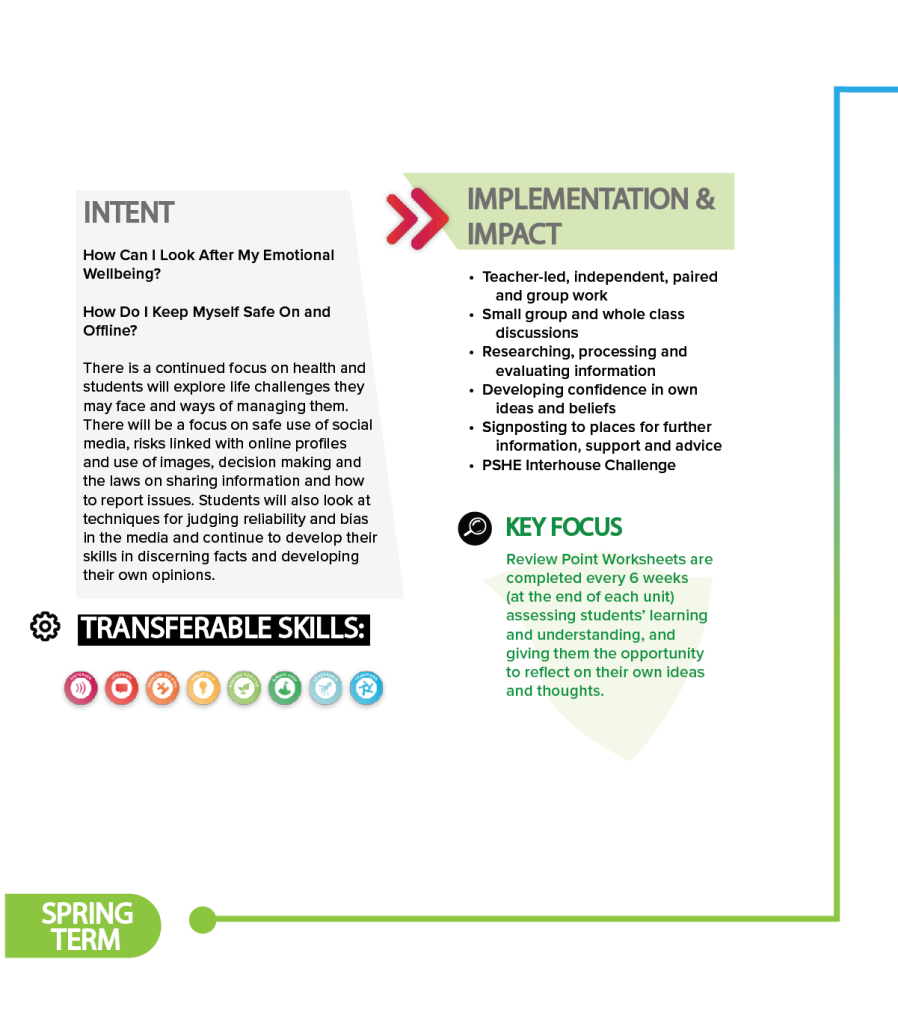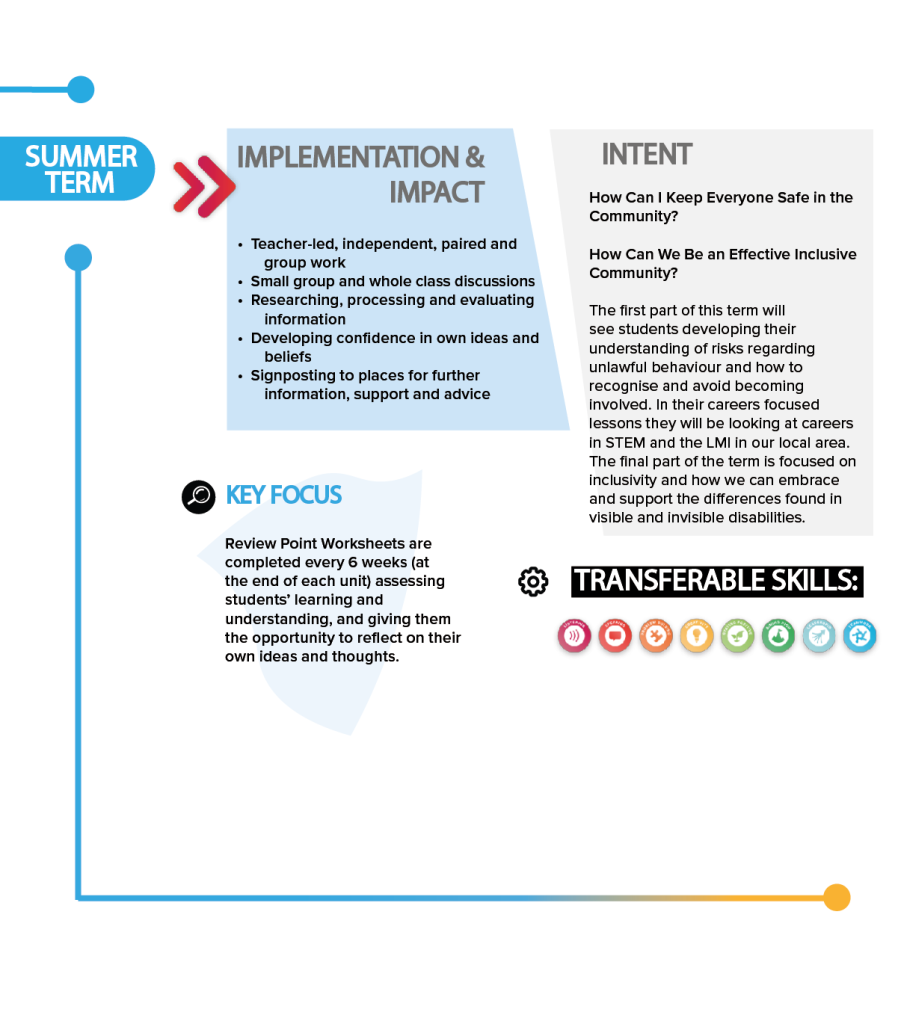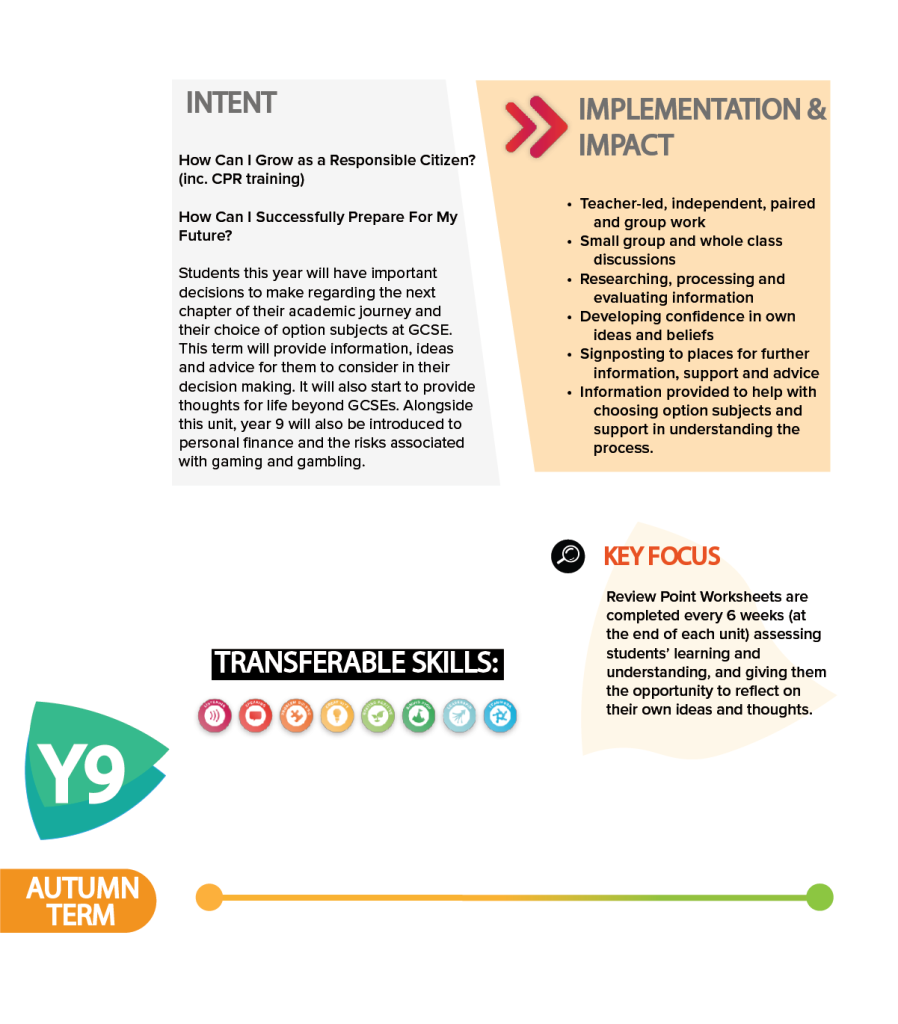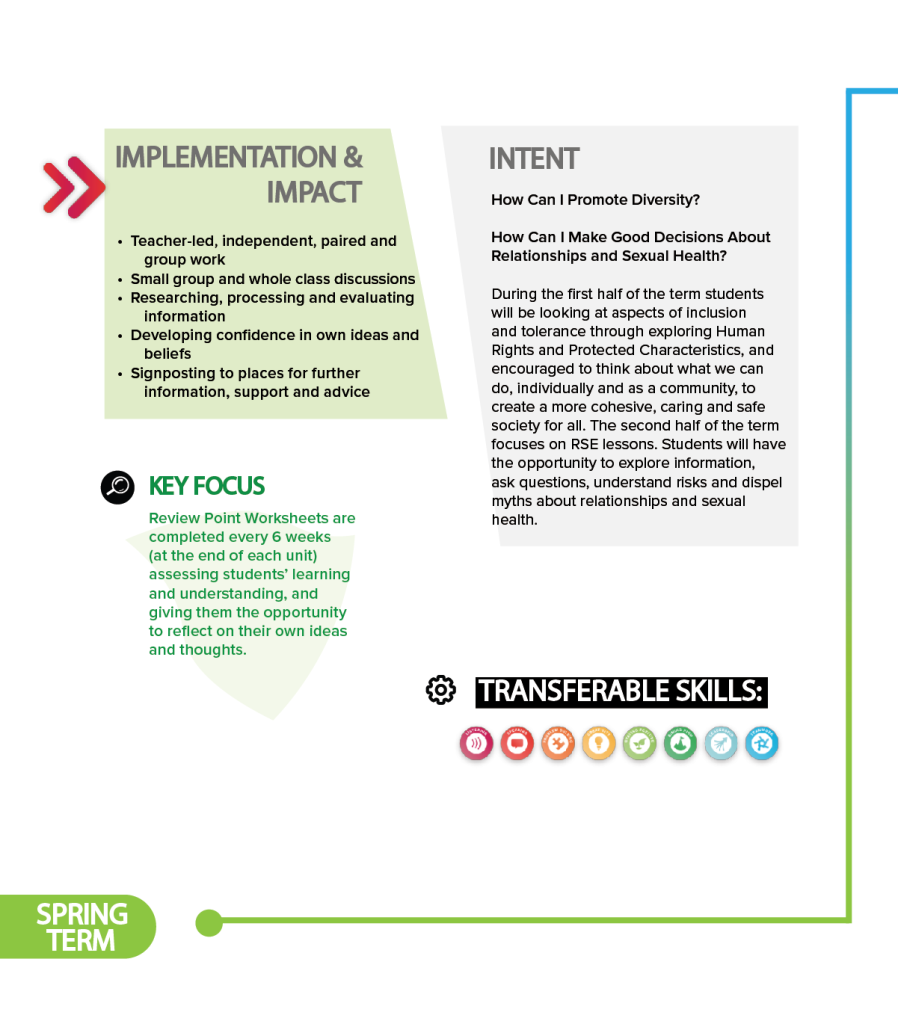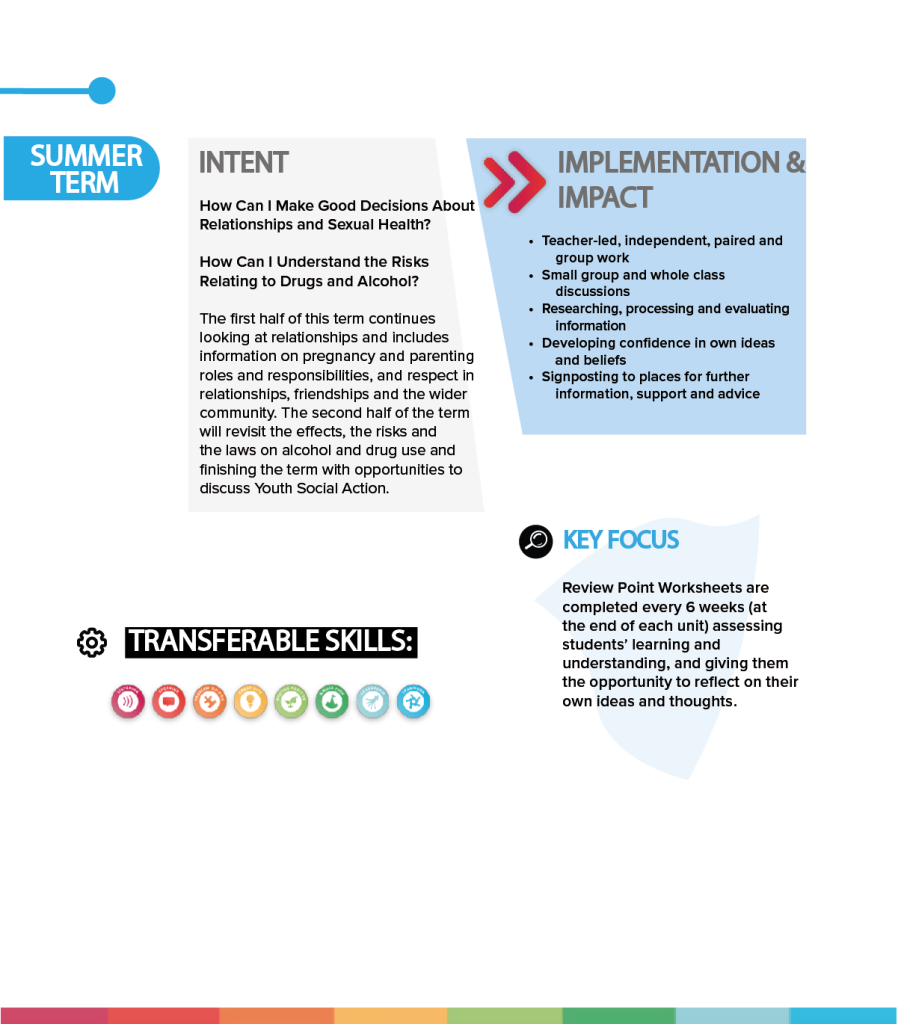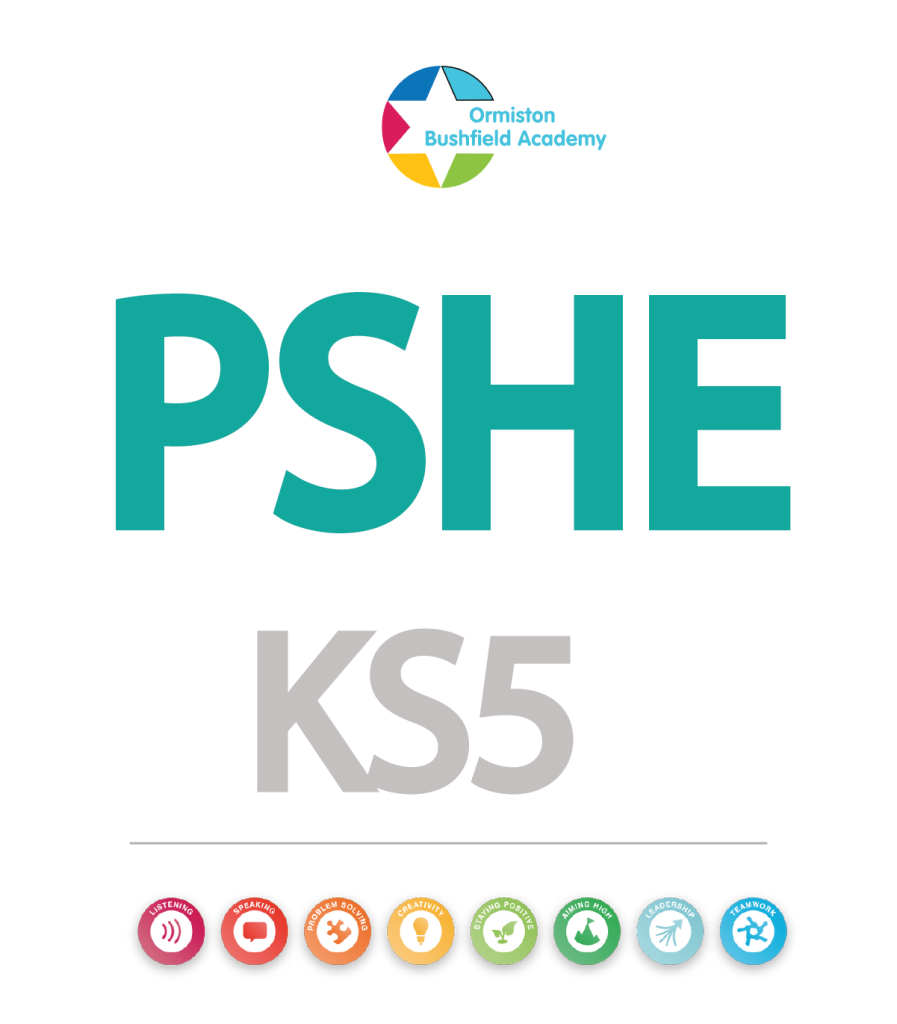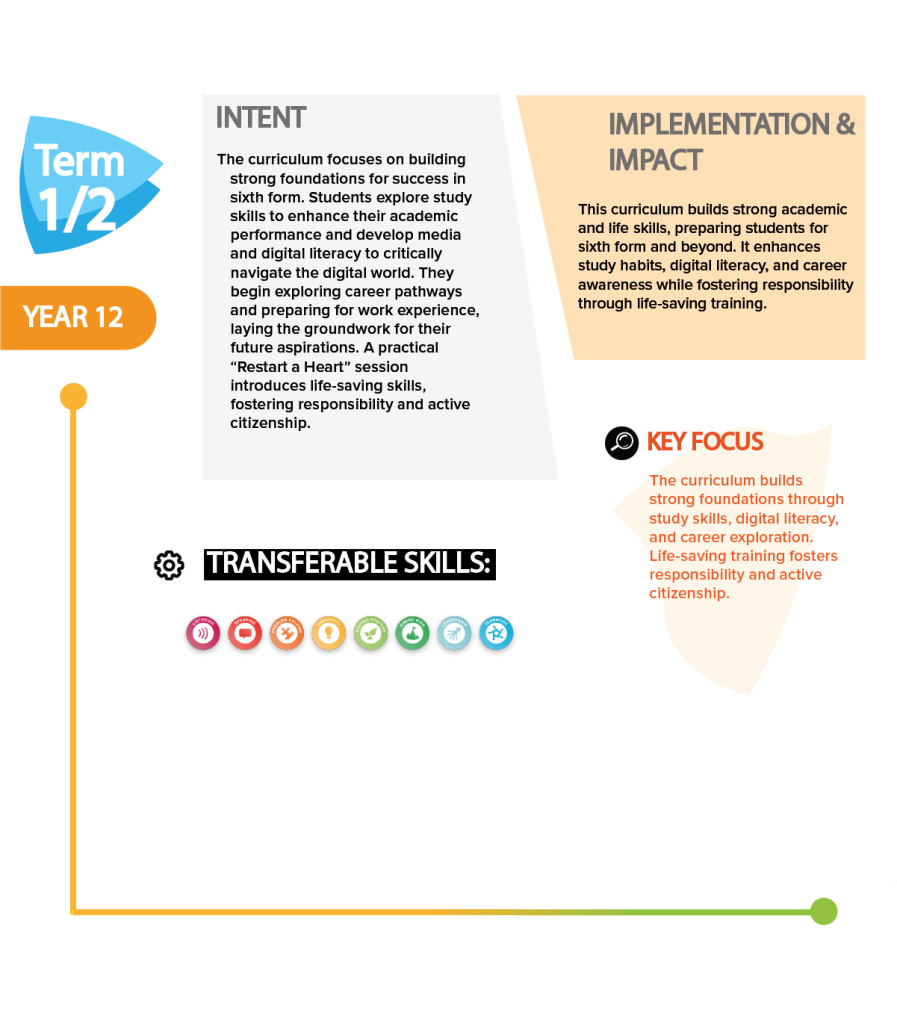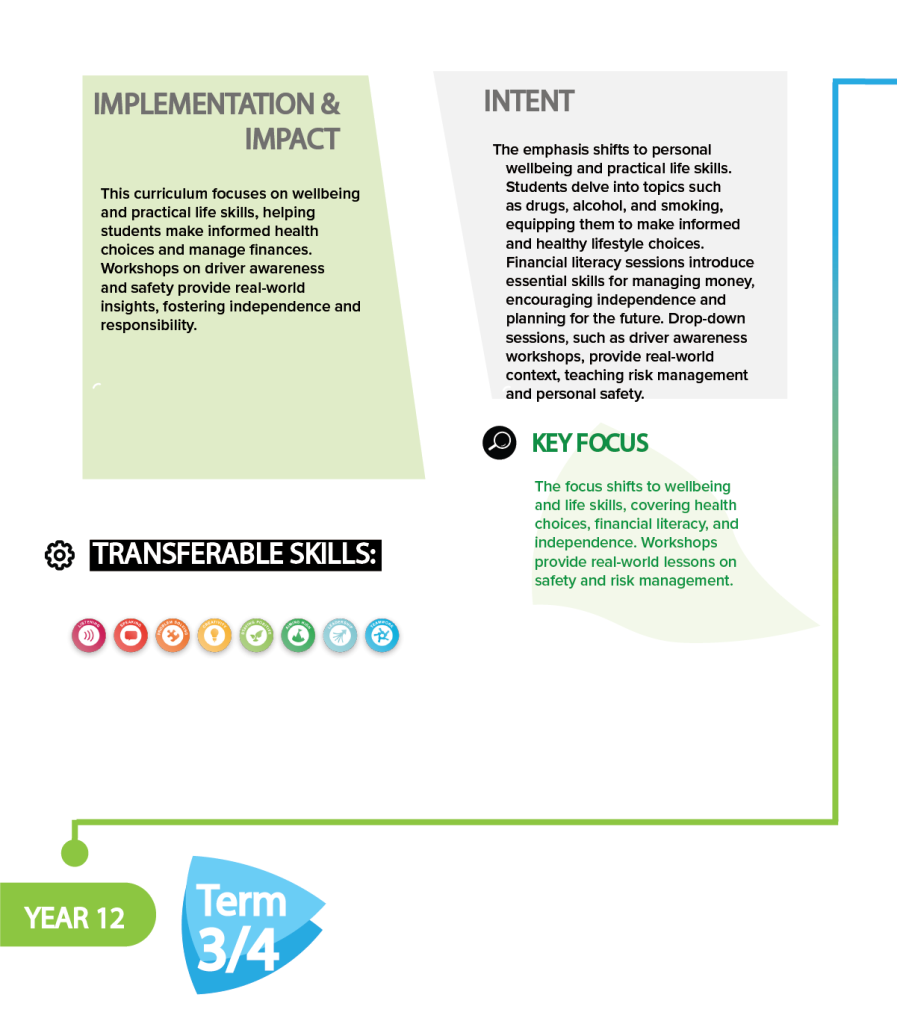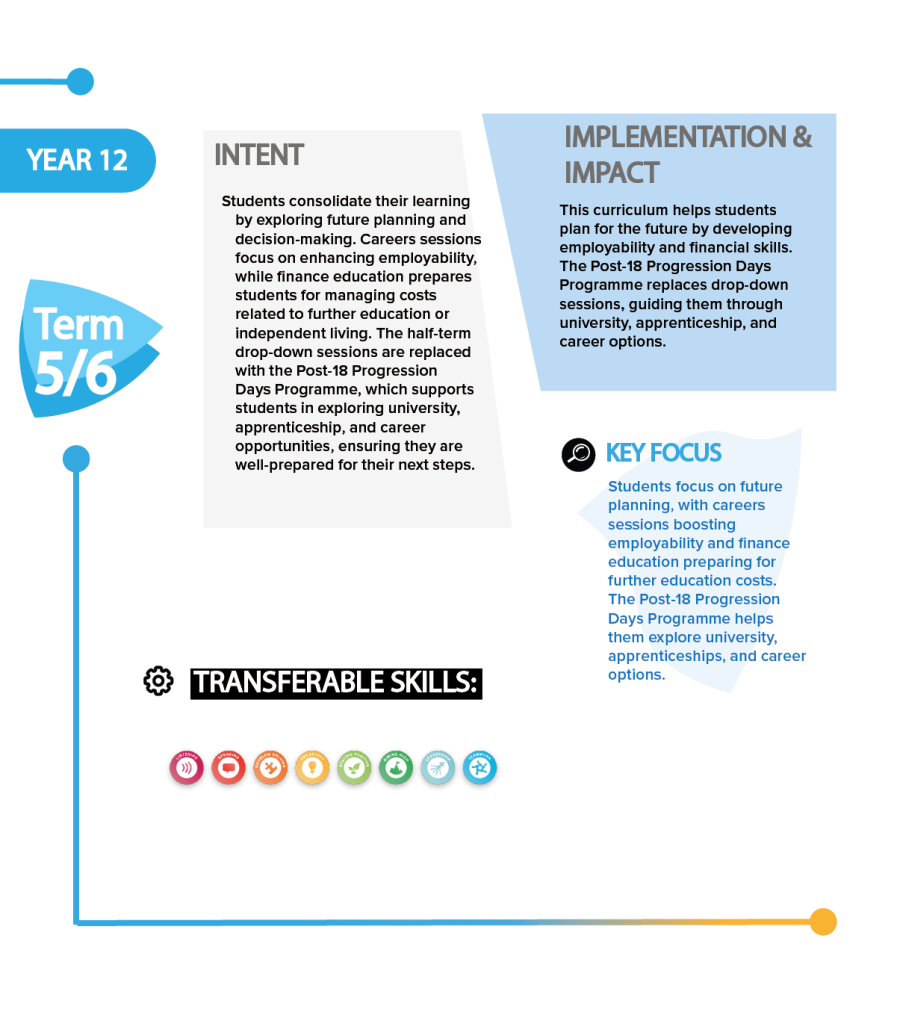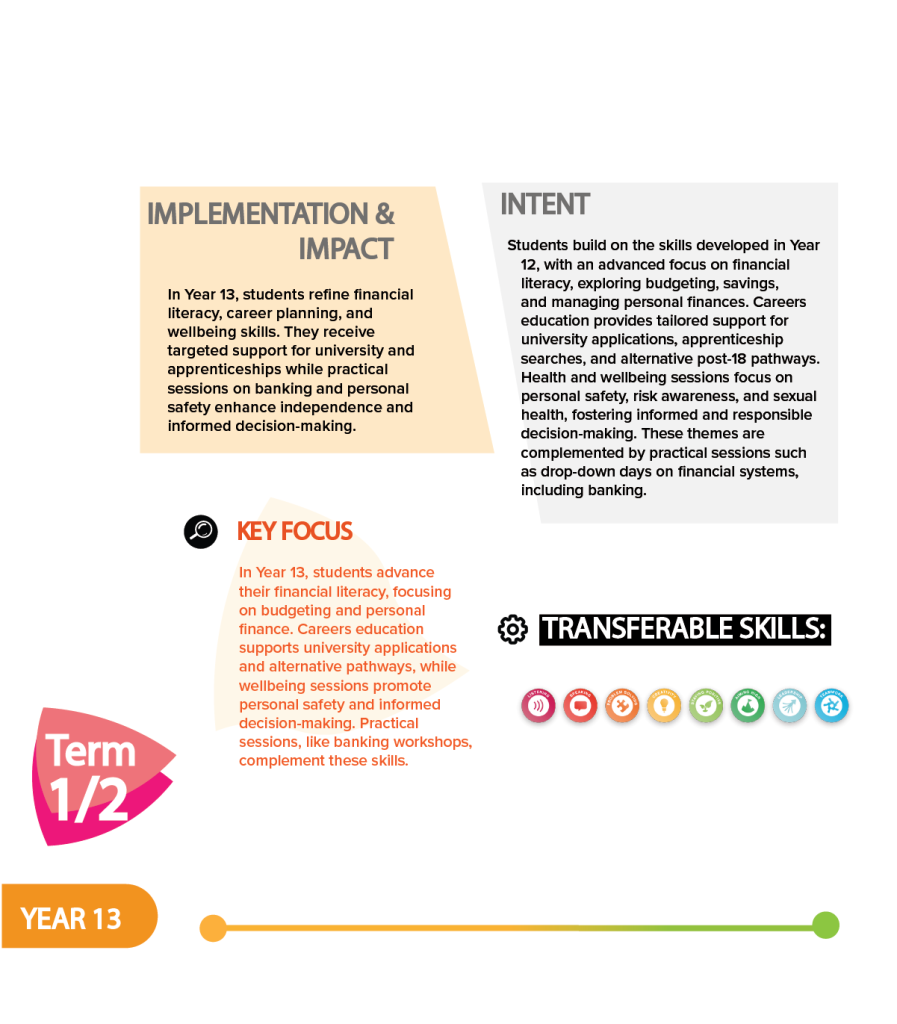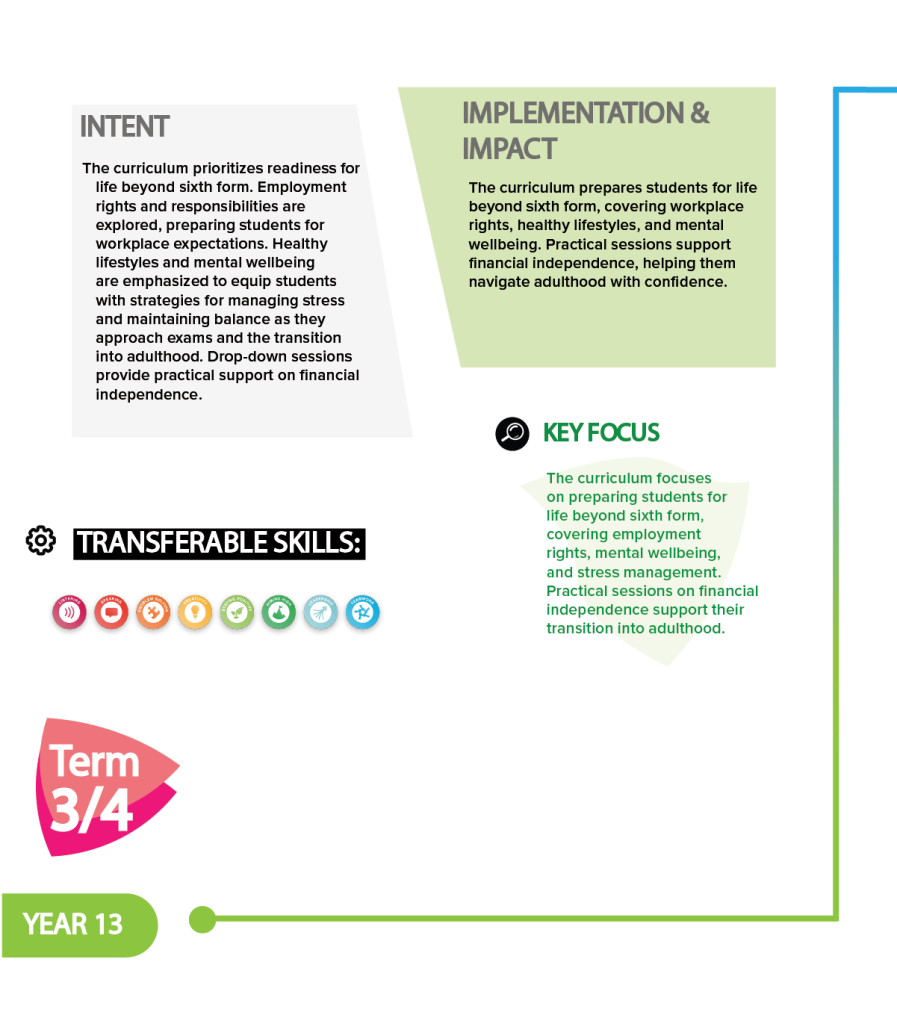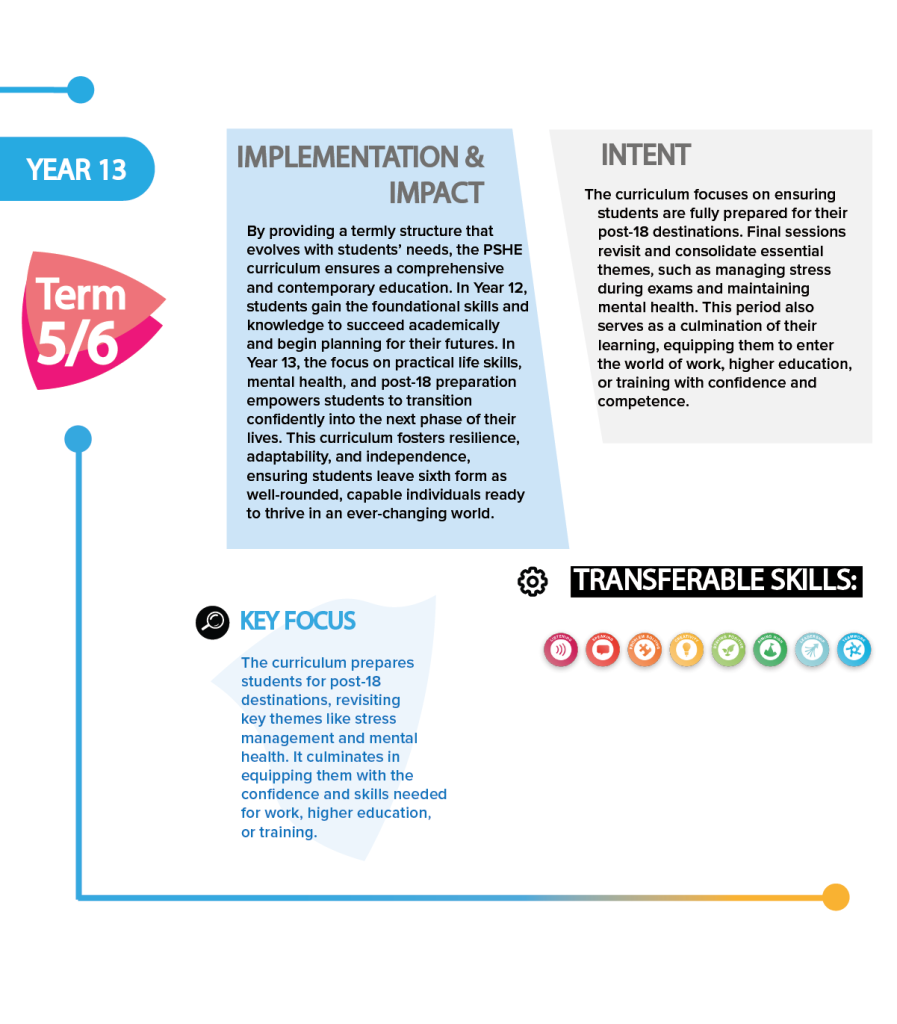PSHE
PSHE education plays a crucial part in supporting our children in both their educational journey and their life beyond. It covers all areas of life, and helps keep children and young people safe, it supports them with mental and physical health and prepares for adulthood and the world of work. What we teach in the classroom will help our pupils foster lifelong aspirations, goals and values. With this in mind, PSHE education isn’t just another school subject. It’s a chance to give every child and young person an equal opportunity to develop the skills and knowledge they need to thrive now and in the future.
This includes helping them to deal with critical issues they face every day such as friendships, emotional wellbeing and change, food choices, exercise, sleep and dental health; mental health; drugs and alcohol; first aid and emergency life-saving skills; sexual health and fertility; managing risk and personal safety.
In 2020, the government introduced a statutory requirement for schools to cover Relationships and Sex education content alongside Health Education at key stages 3 and 4. The Relationships core theme of PSHE education includes learning about positive friendships; bullying and unsafe relationships; relationships values; marriage and parenting; consent; and how to safely engage in relationships online. As outlined in the Sex Education Forum’s review of the evidence base for relationships and sex education, this education supports young people to develop healthy relationships with others, and reduces a range of harms to children and young people, including: reducing sexual violence; making it more likely that first sex is delayed and consensual; increasing the likelihood of safe sexual health practices, and increasing the chances that young people seek help should they experience harm.
From making informed decisions about friendships, alcohol, voting, to developing confidence in performing CPR, safeguarding themselves and people they care about, to succeeding in their first job, PSHE education helps pupils prepare for all the opportunities, challenges, life decisions and responsibilities they’ll face.
This in turn achieves a ‘virtuous circle’, whereby pupils with better health and wellbeing can achieve better academically, and enjoy greater success.
PSHE is taught to every student throughout KS3. As per statutory requirement, all students have a dedicated lesson a week and all students are encouraged to engage, share and discuss the many topics covered over their time at the academy
All students are given the opportunity to succeed in PSHE through a curriculum that helps them develop an appreciation of a range of ideas and perspectives, learn that everyone is entitled to their own point of view and develop confidence in their own thoughts and abilities to make decisions.
All students have access to all the same teaching and curriculum, and their classroom teachers ensure that the information is delivered in accessible ways. Where present, TA’s are given support within the classroom to best support students who are most vulnerable and students are given personalised support by teachers who foster positive and open relationships in their classroom.
The PSHE curriculum provides students with the opportunity to hear a range of voices and perspectives. We regularly introduce and develop understanding of key terminology in a wide range of areas that support students in their comprehension of reading material they read in the media and wider world contexts. PSHE is very much a subject that signposts to a wide range of areas and issues and people that students can seek out further reading and research on.
PSHE uses a wide range of texts and case studies and stories to help explore different topics. Through reading about someone else’s experience, we often find it easier to notice patterns in their behaviour. This means we can analyse, process and understand the situation better than if it were happening directly to us – the story creates a distance that gives room for deeper understanding and more helpful discussions. It can provide light at the end of a tunnel when a student relates to something they have read, know that they are not alone in their thoughts and feelings, and can talk about the person or character rather than themselves. A story can show us new ways of looking at a problem. It can also show us other people’s viewpoints; ones that we might not have considered before. This builds empathy and means that we are better equipped to deal with tricky emotions in the future. We want the reading that is started in the PSHE lessons to be extended into time outside of school.
Recommended Reading
- Newspapers and Magazines
- News Articles
- Speeches given on global platforms such as the UN and COP
- Autobiographies
PSHE enables our pupils to become healthy, independent and responsible members of a society. It aims to help them understand how they are developing personally and socially, and tackles many of the moral, social and cultural issues that are part of becoming young adults. Students are provided with opportunities to learn about rights and responsibilities and appreciate what it means to be a member of a diverse society. They are encouraged to develop their sense of self-worth by developing competencies and by playing a positive role in contributing to school life and the wider community.
The curriculum includes a range of opportunities for students to connect with their local area and communities. They have the experience of outside speakers and agencies coming in to share information and encourage them to deepen their understanding of a variety of issues.
Curriculum Maps
Here you can browse the curriculum map for this subject. Use the left & right arrows to browse through the slides.
